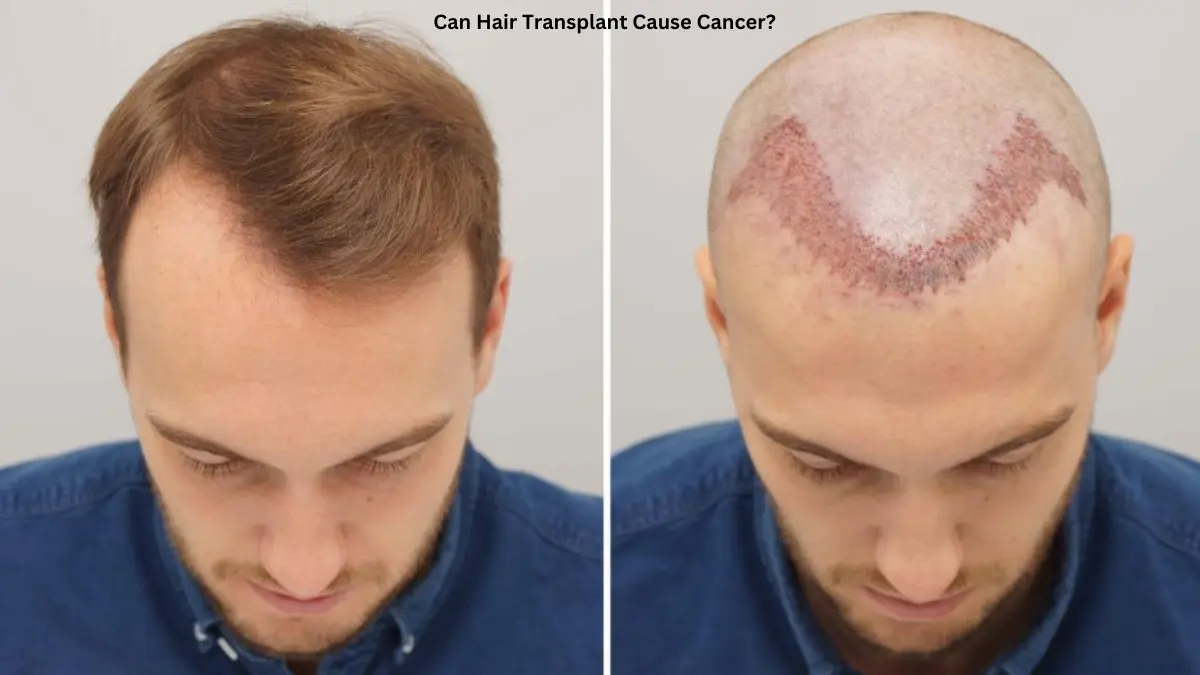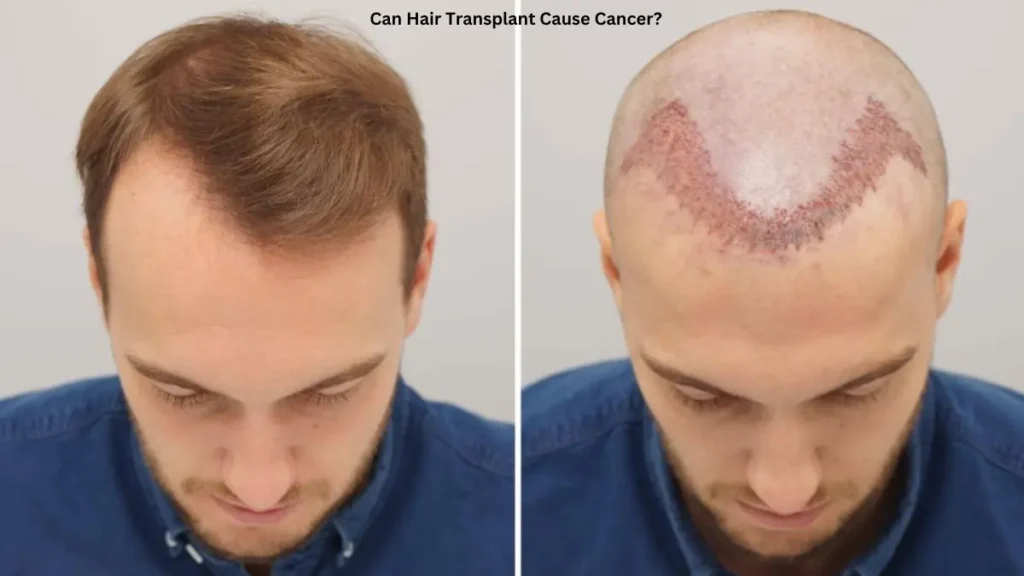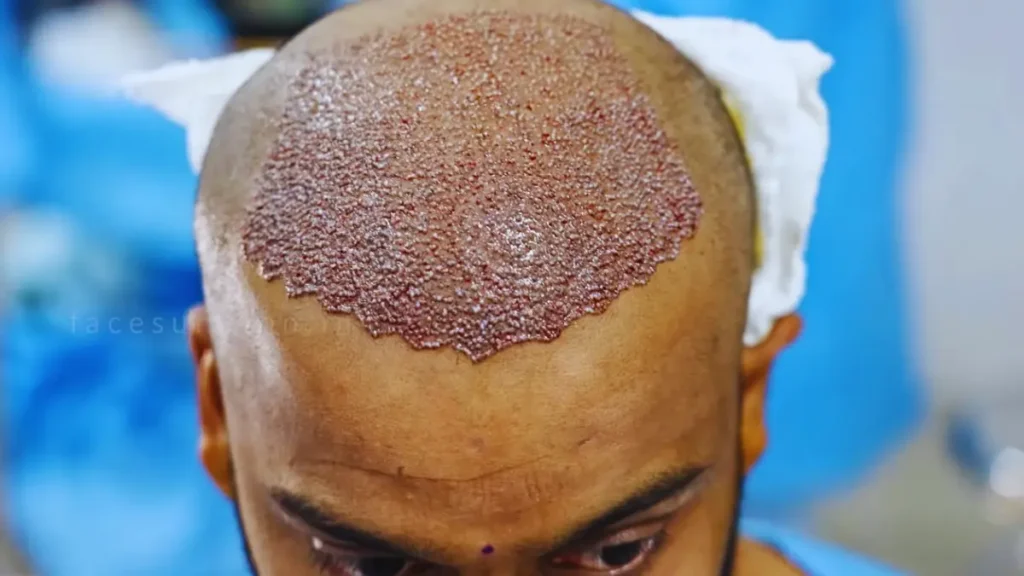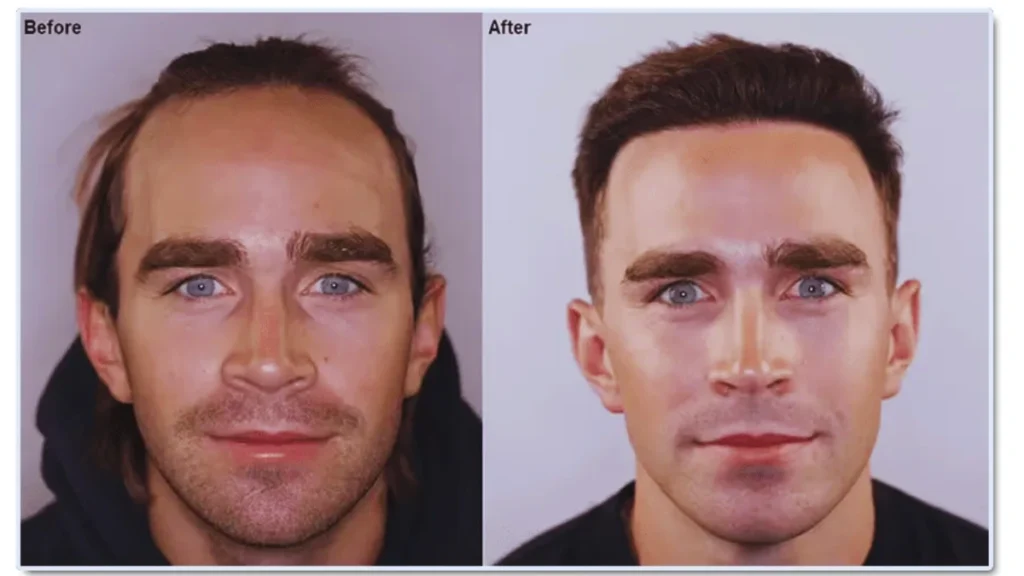

Can Hair Transplant Cause Cancer: Hair loss is a common concern that affects people of all ages, leading many to explore hair transplant procedures as a solution. However, one question that often arises is, “Can hair transplants cause cancer?” In this article, we’ll explore the science, address common concerns, and provide a clear answer based on facts and expert opinions.
Contents
- 1 Understanding Hair Transplants
- 2 Do Hair Transplants Cause Cancer?
- 3 Common Side Effects of Hair Transplants
- 4 Long-Term Effects of Hair Transplants
- 5 Can Cancer Patients Get a Hair Transplant?
- 6 Precautions to Reduce Risks
- 7 Myth-Busting: Separating Facts from Fiction
- 8 Why Choose a Reputed Clinic?
- 9 Can Hair Transplant Cause Cancer Conclusion
- 10 FAQs at Can Hair Transplant Cause Cancer
Book Your Consultation Today
Visit Dr. Hanan Dermatology Specialty Clinic in Padur, OMR, Chennai. Schedule your consultation today and start your journey to fuller, healthier hair.
For more information and to book your appointment, visit our clinic or call us at the clinic’s contact details.
Understanding Hair Transplants
Hair transplants are minimally invasive procedures designed to move healthy hair follicles from a donor area (usually the back or sides of the scalp) to a recipient area experiencing hair loss. The two primary methods are:
- Follicular Unit Transplantation (FUT): Involves removing a strip of scalp from the donor area and transplanting follicular units.
- Follicular Unit Extraction (FUE): Individual follicles are extracted and transplanted to the recipient area.
Both methods focus solely on the top layer of the skin and hair follicles, ensuring minimal disruption to surrounding tissues.
Do Hair Transplants Cause Cancer?
The short answer is no. There is no scientific evidence to suggest that hair transplants, whether FUT or FUE, cause cancer. Here’s why:
- Cancer Development: Cancer results from genetic mutations in cells that lead to uncontrolled growth. Hair transplant procedures do not penetrate deep enough into the skin or involve processes that could trigger such mutations.
- Scientific Backing: Extensive medical studies and decades of hair transplant surgeries have not linked these procedures to cancer.
Hair transplants are considered safe when performed by qualified surgeons, focusing solely on restoring hair and confidence without health risks.
Common Side Effects of Hair Transplants

Although hair transplants are generally safe, they may involve temporary side effects, such as:
1. Infections
- Any surgical procedure carries a slight risk of infection due to breaks in the skin. To minimize this risk, surgeons often prescribe antibiotics and emphasize post-operative care.
2. Swelling and Bleeding
- Mild swelling and bleeding in donor and recipient areas are common but usually subside within a few days.
3. Shedding
- Temporary shedding of transplanted hair occurs within 2-4 weeks as follicles enter a resting phase. This is normal, and new growth typically begins within 3-4 months.
4. Nerve Damage
- Temporary numbness or tingling in the scalp due to anesthesia or minor nerve irritation often resolves within weeks or months.
5. Folliculitis
- Inflammation of hair follicles may occur, appearing as small red bumps. It is treatable with prescribed antibiotics or topical creams.
6. Dermal Cysts
- Rarely, small, harmless cysts can form around transplanted follicles. These usually disappear on their own or with minimal treatment.
Read more: Hair Follicle Surgery A Complete Guide to Hair Restoration
Long-Term Effects of Hair Transplants

Most side effects are short-lived, but in rare cases, long-term issues like scarring or uneven hair growth may occur. These are typically linked to the surgeon’s expertise and the technique used. Choosing a skilled professional significantly reduces these risks.
Read more: Best and Cheap Hair Transplant in Chennai Affordable Solutions for Hair Restoration
Can Cancer Patients Get a Hair Transplant?
Patients with a history of cancer may still be candidates for hair transplants, depending on factors such as:
- Type and Stage of Cancer: Some cancers or treatments, like chemotherapy, may temporarily affect hair transplant suitability.
- Treatment History: Past surgeries or radiation therapy may influence scalp health and donor follicle availability.
Precautions for Cancer Patients:
- Oncologist Consultation: Ensure your oncologist approves the procedure based on your medical history.
- Qualified Surgeon Evaluation: A skilled surgeon will assess your scalp health and potential risks.
- Timing: Wait for a safe period after cancer treatment to reduce complications.
- Regular Check-Ups: Maintain follow-ups with your oncologist and dermatologist.
Precautions to Reduce Risks
To ensure a smooth recovery and minimize risks, follow these tips:
Myth-Busting: Separating Facts from Fiction
There are several myths surrounding hair transplants, including cancer fears. It’s crucial to rely on evidence-based information rather than misinformation. Hair transplants are safe and effective when performed by experienced professionals.
Why Choose a Reputed Clinic?
Selecting a qualified surgeon and reputable clinic is essential to achieving natural-looking results while minimizing risks. Advanced techniques and experienced professionals, like those at Cosmedica Clinic, prioritize patient safety and satisfaction.
Can Hair Transplant Cause Cancer Conclusion
Hair transplants do not cause cancer. These procedures are scientifically proven to be safe and effective for restoring hair and confidence. By choosing a qualified surgeon and following proper aftercare, you can achieve excellent results with minimal risks.
If you’re considering a hair transplant, consult with a reputable clinic to address your concerns and take the first step toward regaining your hair and self-assurance.
FAQs at Can Hair Transplant Cause Cancer
1. Can hair transplants cause long-term health issues?
No, hair transplants are minimally invasive and generally do not lead to long-term health problems when performed correctly.
2. How do I ensure my safety during a hair transplant?
Choose an experienced surgeon, follow post-operative care instructions, and maintain good hygiene during recovery.
3. Are there alternatives to hair transplants for hair restoration?
Yes, options include medications like Minoxidil and Finasteride, PRP therapy, and lifestyle changes. Consult a specialist to find the best solution for your needs.



